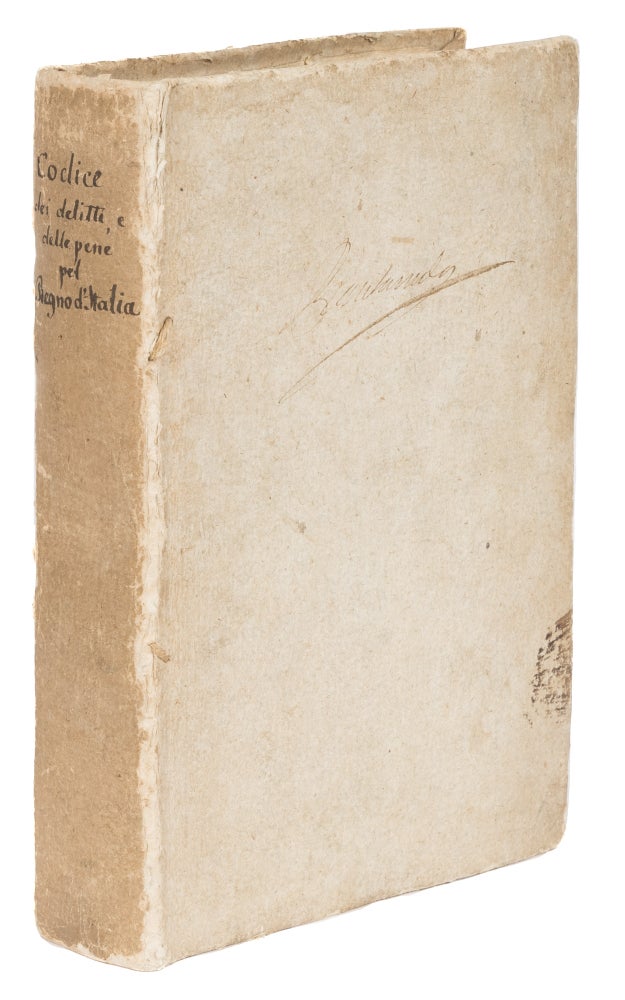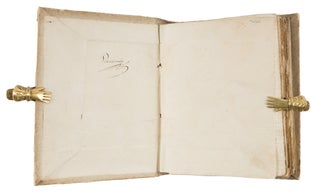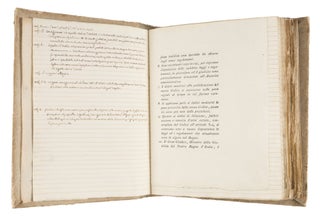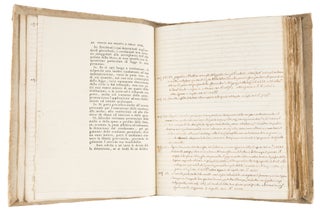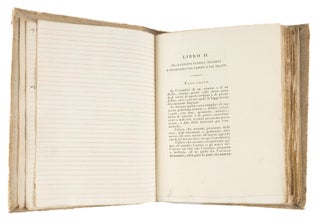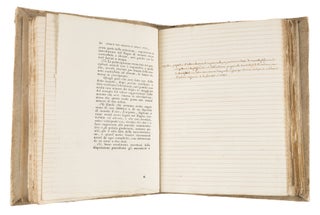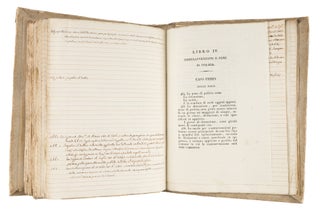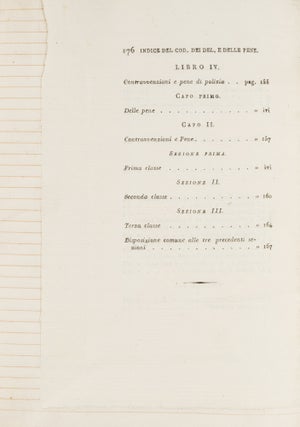Codice dei Delitti e Delle Pene pel Regno D'Italia.
Interleaved and Annotated First Italian Edition of the 1810 Napoleonic Penal Code [Kingdom of Italy]. [Code Napoleon]. [Piantanida, Luigi (b.1770)]. Codice dei Delitti e Delle Pene pel Regno D'Italia. Edizione Ufficiale. Milan: Dalla Reale Stamperia, 1810. 176 pp. Interleaved. Octavo (8-3/4" x 6-1/4"). Contemporary paper boards, inked title to spine, ownership signatures ("Piantanida") to front board and front pastedown, edges untrimmed, later (illegible) ownership signature to rear pastedown. Light rubbing to boards, moderate rubbing to extremities, corners bumped, stitching of text block loosening slightly but secure. Light toning to interior, occasional very faint dampstaining to top-edge, lower corner of leaf 6a (pp. 81-82) lacking without loss to text. Text block fully interleaved (2 ff. between each page) with ruled paper, 64 pp. of annotations to ruled leaves in an early hand. A wide-margined, uncut copy with interesting contemporary annotations. $2,000. * First edition. The first official Italian translation of the French Penal Code introduced by Napoleon in 1810. The Code came into force in the Kingdom of Italy under Napoleon's personal rule on January 1, 1811. It is divided into four books, with the first two covering criminal responsibility and sentencing, the third defining felonies and misdemeanors against the state and individuals and the fourth enumerating "violations," crimes dealt with strictly on the police level. The 1810 code is notable for its harsh penalties, including extensive use of the death penalty and long prison sentences or a lifetime of hard labor for felonies. It reinstated branding and life imprisonment and gave judges significant discretion in sentencing. It is also of interest for its reliance on the idea of criminal responsibility, independent of contingent circumstances and absolute in its consideration of criminal behavior. The present copy may have belonged to the jurist Luigi Piantanida (1770-?), who was a lawyer in Milan and a great supporter of Napoleon, to whom he dedicated his treatise Della Giurisprudenza Marittima-Commerciale Antica e Moderna (1806-1808). The detailed notes appear to concern later updates to the Code and subsequent case law. The latest date in the notes is 1813.
Price: $2,000.00
Book number 74345

